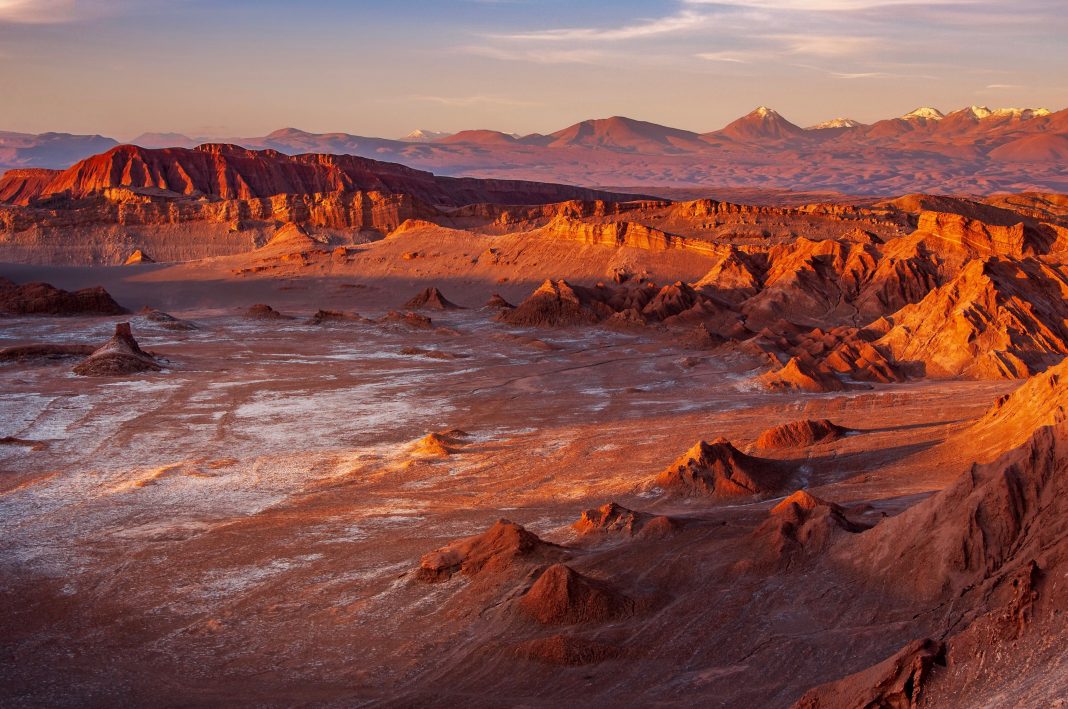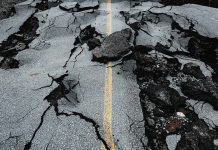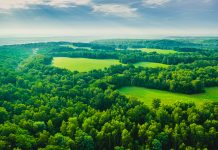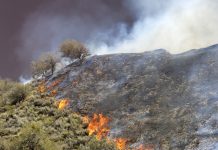Fundación Un Alto en el Desierto (A Stop in the Desert Foundation) is preventing drought in Chile’s desert by harvesting water for isolated communities
Fundación Un Alto en el Desierto (A Stop in the Desert) Foundation seeks to raise awareness about the sustainable use of water, especially in rural schools in the Coquimbo Region, Chile, which severely lack drinking water. Ultimately, the goal is to prevent drought in Chile’s deserts.
The foundation has spent 14 years generating strategies for people and communities to adapt to climate change faster and in a concrete manner. It has developed an extensive environmental education program in which children are the real protagonists, forming the first network of water harvesters and re-users in Chile in order to tackle drought in Chile.
Fundación Un Alto en el Desierto has taken charge of harvesting water for isolated communities in untamed territories using the “fog catcher” system, a mesh that collects this vital element using a simple process to give it back to the community.
Chile possesses an extraordinary and challenging territory
Chile has forged a character that allows its inhabitants to look to the future with a global perspective and actively contribute to environmental matters. This vocation for the future and capacity for innovation has allowed us to offer a series of responses to climate change. Some of them, such as the fog catchers, are shown in the Fundación Imagen de Chile documentary “I am the Earth: Stories from the Southern Edge of the World”, which is now available on the Prime Video streaming platform.
The audio-visual piece highlights different cases to show how the country positions itself as an important stakeholder in mitigating climate change and protecting the ocean and ecosystems. The documentary consists of different stories, and in one of them, we meet Fundación Un Alto en el Desierto (A Stop in the Desert Foundation). The foundation raises awareness about water care, especially in rural schools in the Coquimbo Region that suffer from a lack of drinking water.
What is the Fundación Un Alto en el Desierto?
Natalia Rebolledo is the executive director of the foundation. She is a Universidad de Chile graduate in public administration. For almost a decade, she has worked in public entities such as the Housing Ministry and the National Health Service (FONASA). In 2013, Natalia forged a civil society initiative to raise awareness about water resources.
In this trajectory, her path crossed with a water recycling project in Ovalle. Together, they formed Fundación Un Alto en el Desierto, Chile’s first network of water harvesters who reuse this resource extracted from the fog catchers. “I hope that other places replicate what we are doing here, and there are gradually more and more of us who are involved in environmental conservation and climate change adaptation,” Natalia states.
The foundation has spent 14 years coming up with strategies to adapt to climate change
The foundation has spent 14 years coming up with strategies so that individuals and communities can adapt to climate change in a faster and more concrete way. They have thus developed a broad environmental education programme in which children are the true protagonists, forming Chile’s first network of water harvesters and re-users to confront drought in Chile.
This network comprises 30 rural schools, which have recovered two million litres of water to create common green spaces. They have also installed systems for collecting rainwater, fog and dew and for reusing grey water. These systems were manufactured and operated by the students from the Ovalle Polytechnic High School themselves.

Reusing “grey water” to stop drought in Chile
Un Alto en el Desierto is also in charge of the fog catcher project in the Cerro Grande Ecological Reserve, which promotes efficient water use and the reuse of “grey water”.
The fog catcher is a Chilean invention patented by Professor Carlos Espinoza, who donated the patent to UNESCO so that the whole world can use it. It works by capturing fog and turning it into water. The fog passes through Rachel’s mesh, and the water contained in it becomes trapped. It is then conducted through tubes and pipes to a collection tank. It is, therefore, essential that there is fog and wind.
Chile’s coastal zone is suitable for fog harvesting. In the Cerro Grande Ecological Reserve, the harvested fog water is used to irrigate the reserve itself, provide water for the animals, make beer, and provide water for consumption. The reserve has 29 fog catchers, with a total of 250 square metres of fog harvesting mesh, making it one of the most important fog oases in the region and in Chile.
‘Without water, there are no crops’
“Without water, there are no crops. Livestock farming declines over time. Rural-urban migration increases. Towns are left with no young people. Rural schools have fewer and fewer students. And when there are no children in the schools, the towns die too; they grow old. Nature creates water, not humans. So, by looking at what nature does and how, we can replicate those actions, like we do here at Cerro Grande,” Rebolledo explains.
Harvesting water is extremely important for those who inhabit such an untamed territory. The project shows that human adaptation to climate change is possible and that, with simple methods, it is possible to irrigate in the desert; but for that to occur, there must be will, conviction and action, with a joint effort that includes the community and the public and private sectors, together with international support.
Important too is that, in addition to being a green barrier that is stopping the desert from advancing, Cerro Grande is Chile’s most visited fog catcher park, where environmental education takes place in the open air using concrete examples.
‘I don’t believe that we can stop climate change’
The greatest achievement of the foundation, therefore, lies in stopping the desert from advancing. “In addition to the fog harvest, we recycle grey water from sinks, showers and washing machines in rural schools and homes. Our dream is to be a green barrier, a human barrier to stop the desert from advancing in Chile.”
For Natalia, the mission is clear. “I don’t believe that we can stop climate change, but we must mitigate our impact and adapt to the climate change we are living through. We all have to do as much as possible, because all these small actions add up to a lot. They always tell us to see the issue of water as one of domestic consumption, but that isn’t where it’s consumed the most. However, it’s where we are lacking water the most, in people’s homes, and that’s where we must focus our energy, in order to optimise the water we have.”
The task of Fundación Imagen de Chile is to manage the country brand in order to strengthen Chile’s reputation and improve its spontaneous appreciation by others. This translates into designing and implementing a coordinated strategy to shine a light on Chile via its unique and competitive identity, which provides consistency between the country’s commercial, economic, cultural, political and social aspects.
This piece has been written and provided by Fundación Imagen de Chile and Fundación Un Alto en el Desierto.











